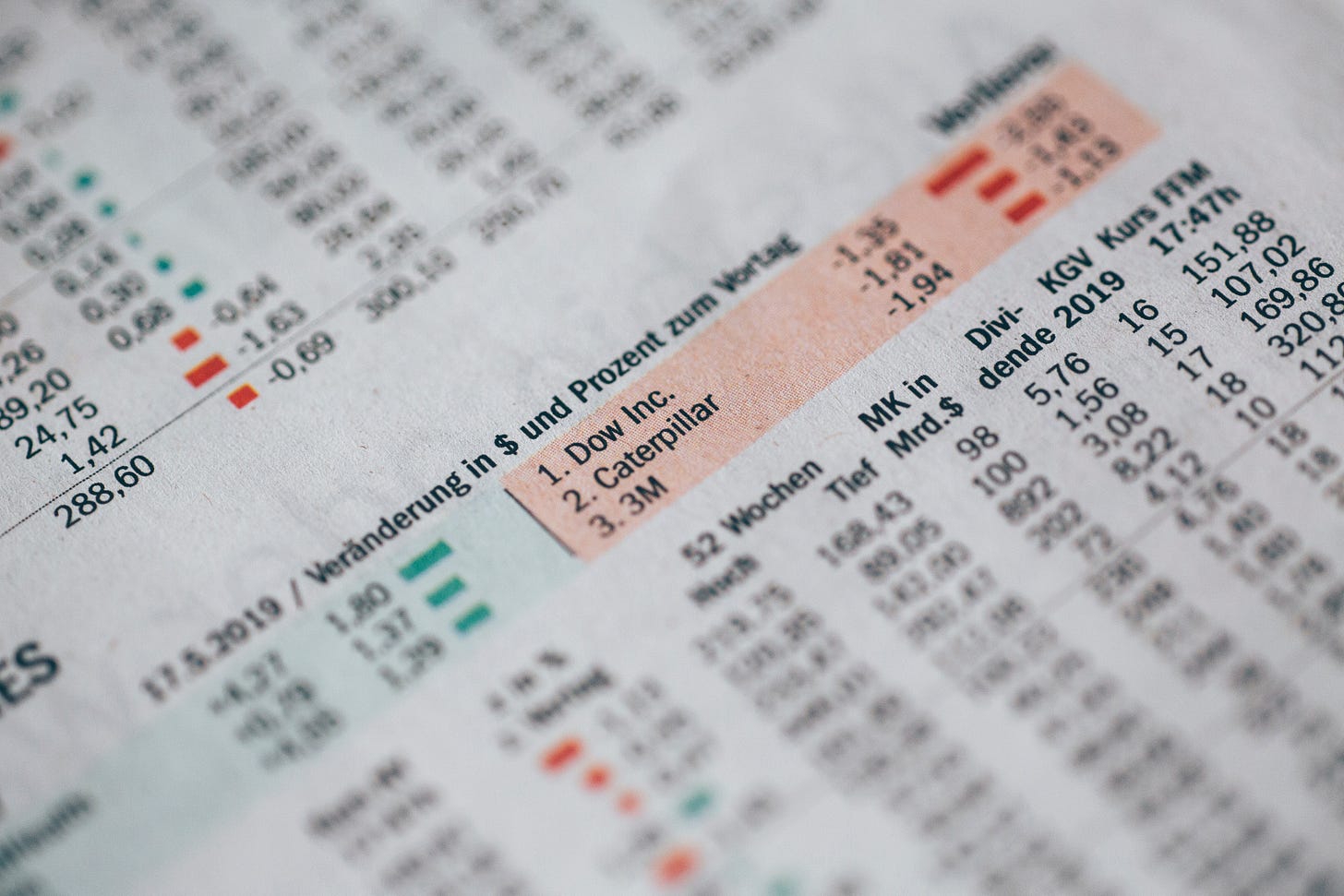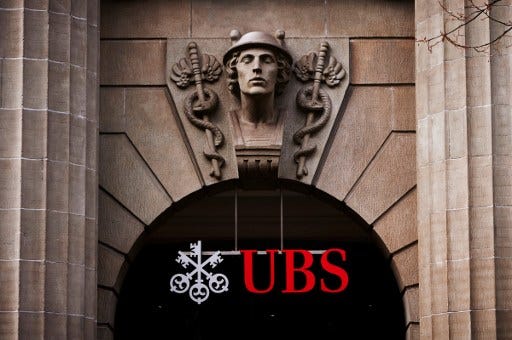Dear Insider,
For many of you, this is your first introduction to The Swiss Insider.
Welcome!
(And congratulations…you’ll see why later on…)
Some of you have previously enjoyed regular updates via The Point - and your support over the last years is much appreciated. Now it’s my pleasure to welcome you to The Swiss Insider.
The thesis is quite simple: business is done by those who know.
Being successful in business means being smarter than those around you and using your knowledge and insights to get ahead. This is the way it has always been - and this is the way it always will be.
Switzerland in particular has enjoyed a world-wide reputation for doing stellar business at the highest levels in a culture of relative secrecy, close-knit circles of acquaintances and inside connections. Banking secrecy was the most well-known manifestation of this aura - but not the only one.
Swiss watchmakers have jealously guarded the secrets of their trade for generations.
Some of the largest retailers in Switzerland (such as the ubiquitous department store Manor) have operated as tightly-controlled empires, often under the leadership of a single family.
Swiss real estate - even more than many other countries - is the territory (pun intended) of local barons who leverage personal connections to develop their holdings. Robert Heuberger is just one example…Urs Ledermann is another.
If you add the fact that business in Switzerland is conducted in three different languages, within three (sometimes very) different cultures - you find an even deeper layer of complexity.
The Swiss Insider presents a window into this world - for you.
The goal?
Simple - to let you do it…smarter. The little extra edge, a little clearer understanding, the analysis that opens up a new angle - it all starts here.
Here’s the catch - you will not find this newsletter splashed about on social media. You won’t find it advertised all over the internet. It’s not for everyone.
You may, of course, share it with your colleagues and acquaintances — but ONLY if you feel it is worthwhile - and if you feel they will benefit from it.
You are the judge - you are the door that leads inside.
For this reason, I say again - congratulations!
Sincerely,
Ian Simpson

The Numbers Game
In which we serve up some of the more interesting numbers in Swiss business…
20
Switzerland has not updated its anti-money-laundering laws in over 20 years - a cause for concern among some, even as the Swiss government announced that banks would (finally) get an electronic system for reporting suspicious money movements - the goAML tool developed by UN personnel.
300 / 700
Switzerland is home to 300 persons (home at least in the legal sense of the word…) with fortunes of at least 100 million CHF. Their total worth? Over 700 billion Swiss francs. You can buy a lot of chocolate for that…
2x
According to a study by Zurcher Kantonalbank, house prices in Switzerland have doubled since the turn of the millennium. The same report estimates that only 1/5 of the population has the necessary income and capital level needed to purchase a home. Twenty years ago, that number was over 50%…
30%
Lombard Odier Managing Partner Patrick Odier recently revealed to the Financial Times that approximately 30% of the banks 2 480 employees work in technology. For this reason (among others) the 64 year-old banker does not fear tech disruption - at least not yet.

The Briefing
In which we digest business news from around Switzerland - bit by bit…
The Swiss swaps - What can bring two of the biggest rivals in Swiss banking together? A blockchain, naturally… UBS and Credit Suisse completed the first collateral swap using a R3 Corda-based system. The trade of corporate and government bonds was carried out on the infrastructure of Deutsche Börse and HQLAX. (Read it on Finews here.)
Rents on a run - New data shows that prices for office space in Zürich are picking up again with greater demand - and a resulting lower vacancy rate. Super top spots in the very center of the city have risen 7% over the last two years. What is top price? Over 900 CHF/sq. meter. (Read it on NZZ here.)
Rubbing the wrong way - According to an investigative report, there have been 200 000 tons of rubber particles “emitted” on Swiss roads since 1988. This comes mainly from rubber tires (of course). (Read the details on SwissInfo)
Russian to conclusions - One of Switzerland’s strongest chocolate and sweets brands, Lindt & Sprungli finds itself in the crosshairs of Russian authorities for supposedly having sold goods of inferior quality within the Russian Federation. No one wants bad chocolate, it seems… (Read it on SRF.)
The Point Is…
In which we dive into the depths of a hot topic of the times…

Serving the Rich - a Business of Belief
The Swiss business monthly Bilanz recently served up its December issue with an in-depth look at the 300 richest people in Switzerland.
Editor Dirk Schütz’s preface to the highly-anticipated number took a shot at the recent trend of "Rich-Bashing" - with pertinent references to Elizabeth Warren and her wealth tax proposal - as well as the Jeremy Corbyn's Labour party and its disdain for the riches of the upper-class.
Let's be honest - one would not expect anything less from Bilanz.
But besides catering to the hunger of the aspiring middle-class in Swizerland that eagerly gobbles up content about those who occupy the next level up, the Bilanz issue begs the question of why serving the rich seems to be such a Swiss speciality. And it leads us to further analysis of whether this niche market, if we can name it as such, is inherently beneficial to the overall Swiss economy or not.
It doesn't take a genius, of course, to come to the conclusion that a large part of Switzerland's attractiveness to foreign millionaires and billionaires can be traced back to its reputation for stability and security. Whether it was bunkers full of Nazi gold that first spawned this renown or not, we cannot rightly say for sure - and it hardly matters.
Bring someone inside.
Recommend The Swiss Insider to a colleague or acquaintance.
You decide who comes inside.
A decentralized, stable government structure and an economy that has survived two world wars and East-West conflict during the Cold War rightly placed Switzerland on the map as the place to go if you want to protect your wealth, of all shapes and sizes, for the long term.
Thus an entire "cottage industry" (as rough as that term may seem - it applies) of private banks and wealth managers was born.
But serving the rich is not a concept that applies exclusively to the banking industry - nor to the 1% that they exist to serve.
Ask any European which country on their continent they would generally consider to be the richest and you will almost invariably receive the same answer: Switzerland.
And when they say so, they aren't referring to the ultra-rich holed up in their bunkers deep in Berner Oberland.

High-end chalets are par for the course in Gstaad - and not only…
No - they mean the ordinary citizens of the 27 cantons of all of Switzerland. Do they have a point?
In a way they do.
The average monthly salary of a Swiss worker is roughly 6 500 CHF. That is roughly twice the typical wage in the European Union and 1.8 times higher compared to workers in the US. Are Swiss people rich? Some yes - others decidedly less so.
But with higher wages, come higher costs - whether for insurance, clothing, automobiles or food. Residents of Switzerland, especially those who move to the country for work, know all too well, that despite their enviable salary, they end up paying a hefty price for just about everything.
And in return for such a high price, even the most ordinary of Swiss citizens expects to be served with a high standard of quality. The mentality of elevated wages and elevated standards of living has led to an elevated level of expectations - which merchants and service providers are only too happy cater to.
The fundamental question we address, then, is this: does catering to a more affluent class of people have an inflationary effect on an economy as a whole?
The answer would seem to be simple: yes.
The backstory, as we have established, to this inflationary trend is the fundamental belief in Swiss consumers that higher standards can justify a higher price point.
While it might not be at first apparent, we see that the mentality of "relative richness" leads to a certain level of faith in a system that serves the average consumer as if he or she were rich.

This belief takes on another dimension when we apply it to businesses and their success. UBS, the world's largest manager of wealth (and thus somewhat of an expert on the subject of the rich) recently published a report claiming that companies run by billionaires are more profitable.
Since the big bank seems to have the numbers to back it up, there may be no way to dispute the claim. Nor would many even attempt to do so - the inherent belief that successful people running businesses must automatically be better at whatever they do understandably runs very deep in society.
And if the rich are right - by means of their success - then it makes all the more sense to serve them, just as they like.
Ultimately, the impact of having so many wealthy people among its population and of fostering a societal acceptance of catering to high-earners will be borne out over time. It is likely that Switzerland - by the good fortune of its history and stable, neutral situation, will never divorce itself from the role of serving the rich who have now become such a fundamental factor in the country's economy.



